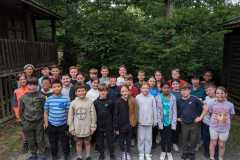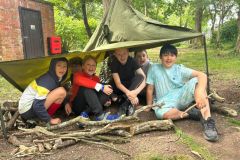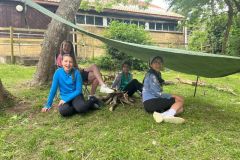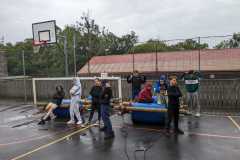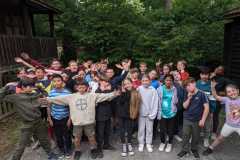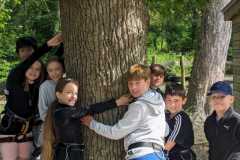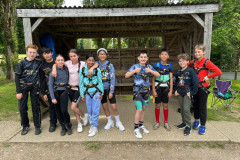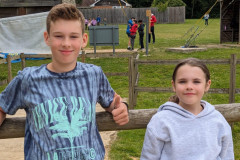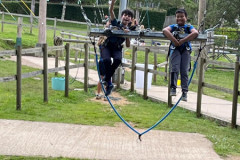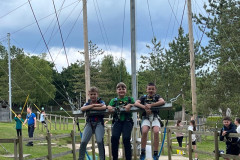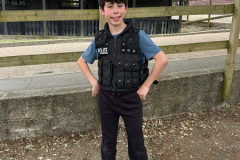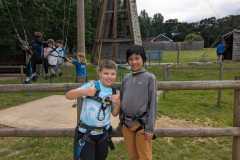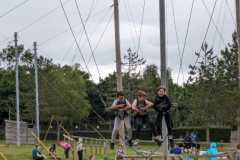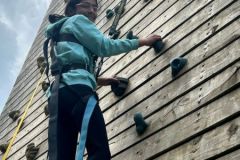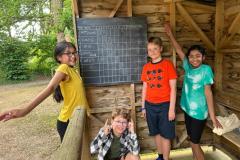Introduction
We would like to welcome you to the Early Years Foundation Stage and hope that your child will be very happy with us. We hope that the time your child spends with us will be both enjoyable and rewarding.
‘Every child deserves the best possible start in life and the support that enables them to fulfil their potential. Children develop quickly in the early years and a child’s experiences between birth and age five have a major impact on their future life chances. A secure, safe and happy childhood is important in its own right. Good parenting and high quality early learning together provide the foundation children need to make the most of their abilities and talents as they grow up.’ (The EYFS Statutory Framework. P2)
The Early Years Foundation Stage (EYFS) combines the frameworks previously known as Birth to Three Matters and The Foundation Stage. It covers children’s learning and development from birth and continues until the end of the Reception year. It is divided into four main themes expressing important principles which underpin the children’s learning and development.
A Unique Child – every child is a unique child, who is constantly learning and can be resilient, capable, confident and self-assured;
Positive Relationships – children learn to be strong and independent through positive relationships;
Enabling Environments – children learn and develop well in enabling environments, in which their experiences respond to their individual needs and there is a strong partnership between practitioners and parents and/or carers; and
Learning and Development – children develop and learn in different ways and at different rates. The framework covers the education and care of all children in early years provision, including children with special educational needs and disabilities
The areas of learning and development
There are seven areas of learning and development . Three areas are particularly crucial for igniting children’s curiosity and enthusiasm for learning, and for building their capacity to learn, form relationships and thrive.
These three areas, the prime areas, are:
- communication and language;
- physical development; and
- personal, social and emotional development.
There are four specific areas, through which the three prime areas are strengthened and applied.
The specific areas are:
- literacy;
- mathematics;
- understanding the world; and
- expressive arts and design.
Communication and language development involves giving children opportunities to experience a rich language environment; to develop their confidence and skills in expressing themselves; and to speak and listen in a range of situations.
- Physical development involves providing opportunities for young children to be active and interactive; and to develop their co-ordination, control, and movement. Children must also be helped to understand the importance of physical activity, and to make healthy choices in relation to food.
- Personal, social and emotional development involves helping children to develop a positive sense of themselves, and others; to form positive relationships and develop respect for others; to develop social skills and learn how to manage their feelings; to understand appropriate behaviour in groups; and to have confidence in their own abilities.
- Literacy development involves encouraging children to link sounds and letters and to begin to read and write. Children must be given access to a wide range of reading materials (books, poems, and other written materials) to ignite their interest.
- Mathematics involves providing children with opportunities to develop and improve their skills in counting, understanding and using numbers, calculating simple addition and subtraction problems; and to describe shapes, spaces, and measures.
- Understanding the world involves guiding children to make sense of their physical world and their community through opportunities to explore, observe and find out about people, places, technology and the environment.
- Expressive arts and design involves enabling children to explore and play with a wide range of media and materials, as well as providing opportunities and encouragement for sharing their thoughts, ideas and feelings through a variety of activities in art, music, movement, dance, role-play, and design and technology.
The experiences that our children meet often enable them to develop a number of competencies, skills and concepts across several areas of learning at a time.
The characteristics of effective learning
In planning and guiding children’s activities, practitioners reflect on the different ways that children learn and reflect these in their practice. Three characteristics of effective teaching and learning are:
- playing and exploring – children investigate and experience things, and ‘have a go’;
- active learning – children concentrate and keep on trying if they encounter difficulties, and enjoy achievements; and
- creating and thinking critically – children have and develop their own ideas, make links between ideas, and develop strategies for doing things.
Our Aims
At Farnborough the EYFS curriculum we offer is based on the following principles:
- To build on what a child already knows and can do by offering a structure for learning that has a range of starting points and content.
- To provide a rich and stimulating environment which endeavours to be an inclusive one taking into account the children’s individual needs in the context of equality of opportunity for all, regardless of gender, ethnicity, religion, age or disability.
- To provide a safe and supportive environment in which the contribution of all children is valued, which encourages children to develop enquiring minds, confidence, and become responsible and independent.
- To use the local environment and community as a source of valuable learning experiences, developing an understanding of the world in which we live.
- To support learning with appropriate and accessible indoor and outdoor space, facilities and equipment.
- To ensure children are making good progress and reaching their full potential.
- To maintain high expectations educationally and in general behaviour and attitude.
- To work in partnership with parents/carers and relevant outside agencies.
- To ensure the safety of the children at all times,
- Through a carefully planned curriculum, to support children in achieving the Early Learning Goals and a ‘Good Level of Development’ by the end of the Foundation Stage
